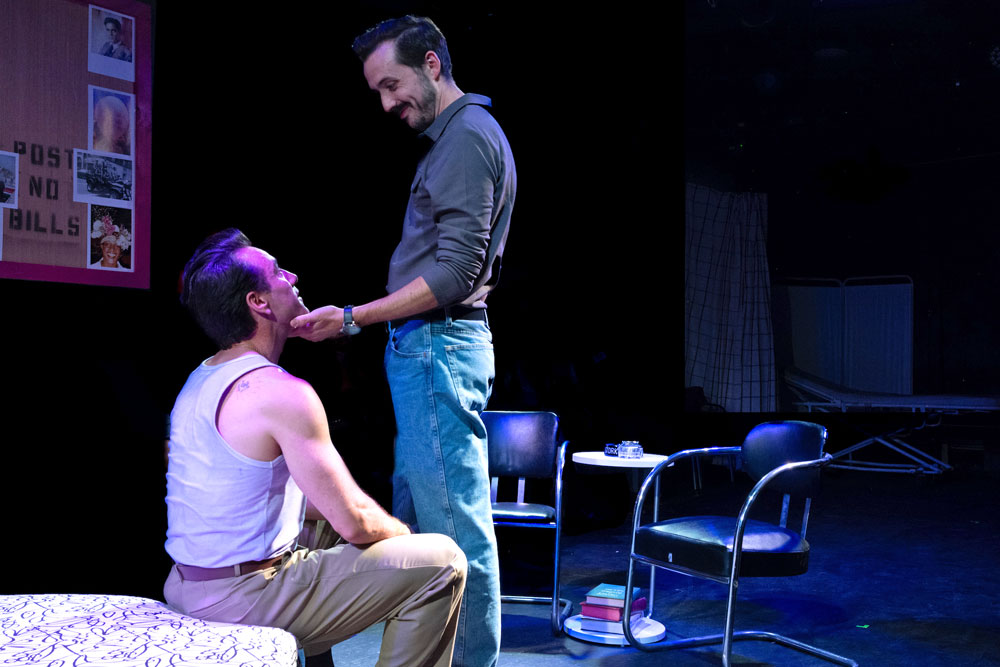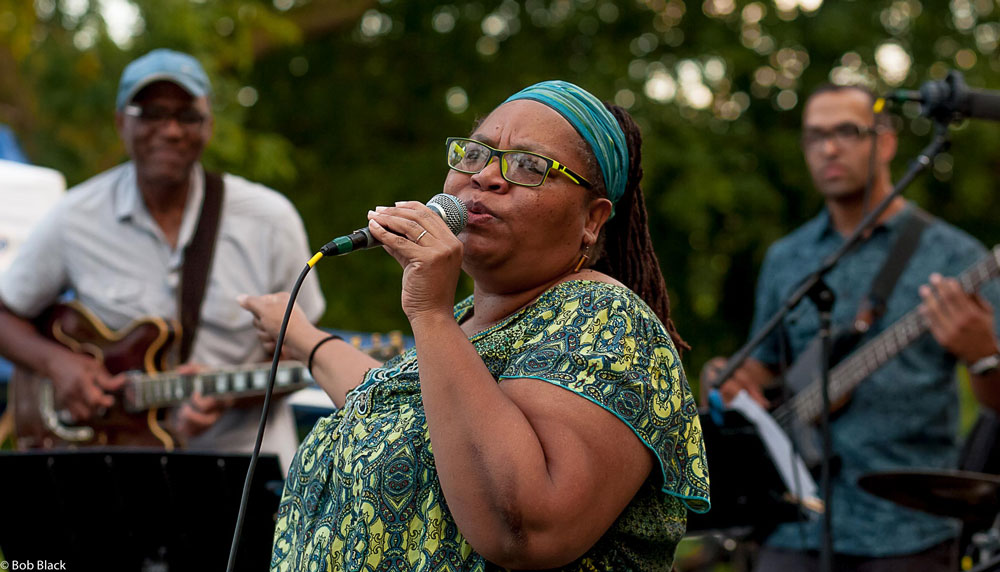
Has there ever been a time in history when significant human migration wasn’t occurring? Headlines these days continue to blare about migrants at the border. In the US, they’re talking about the southwestern borders of California and Arizona. In England, France, Italy and Germany, they refer to the watery borders of the English channel and Mediterranean Sea. Whether here, Europe or other less chronicled locations on earth, migration is about people fleeing their homeland, often at great peril, in search of something better.
Enough time has passed for another colossal migration, this one internal to the United States, to have faded from our collective memory. It started around 1910 and didn’t end until a half century later. Between those years, approximately six million Americans crossed the Mason-Dixon line headed North to where they hoped they’d have a better chance of building a stable fulfilling life for themselves and their families. Known as the Great Migration, it’s impact still reverberates through families and the nation. And like all migrations, those courageous pioneers brought the traditions and folkways that define who they are with them to their new homes.
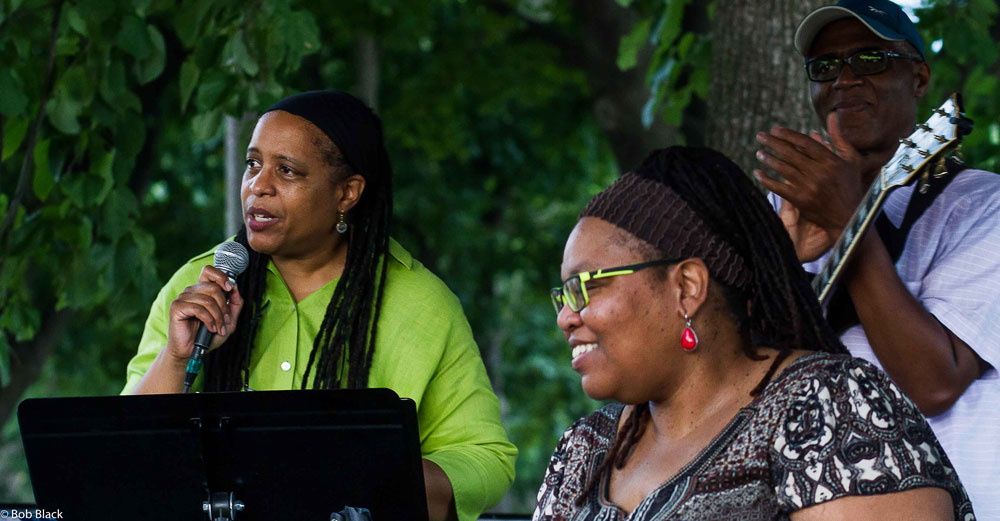
A presentation of the Chicago Parks District’s Nights Out in the Park, Chicago Bound: The Great Migration of the Blues, showcases how one of those intangibles, music, placed its cultural stamp on a city. Veteran vocalist and composer, Lucy Smith, backed up by her dynamite quintet, made up the musical component of the event. Jazz, gospel and popular music are all musical forms over which Smith has proven her mastery. And based on the performance in the Morgan Park neighborhood Saturday afternoon, her deftness and skill at singing the blues warrant their own headlines. Together with her band, she delivered gold plated excellence with every song; making the ninety-minute free outdoor concert a summer highlight with its music alone. Surprisingly, the venue carried with it a secret weapon that catapulted a wonderful musical concert into a brand-new realm. One where entertainment and enlightenment joined forces to create something uniquely exceptional.
By providing detail on the origins of the songs they sang; and by highlighting the impact the blues had on the contours and textures of Chicago’s and America’s artistic identity, the musical side of Chicago Bound glistened with even more brilliance. The added perspective also offered fascinating insight into the people who originated such formative musical energy.
Either prefacing or adding commentary following a song, or sometimes two, journalist and local media personality, Cheryl Corley shared stimulating tidbits about who wrote what and why. Right after Smith and her band opened with a saucy version of Big Bill Broonzy’s Hey Hey, Corley talked about how prolific Broonzy had been as a songwriter. By the time he passed away in the late 50’s, he’d written over 300 songs and made an indelible mark on musicians following in his footsteps.
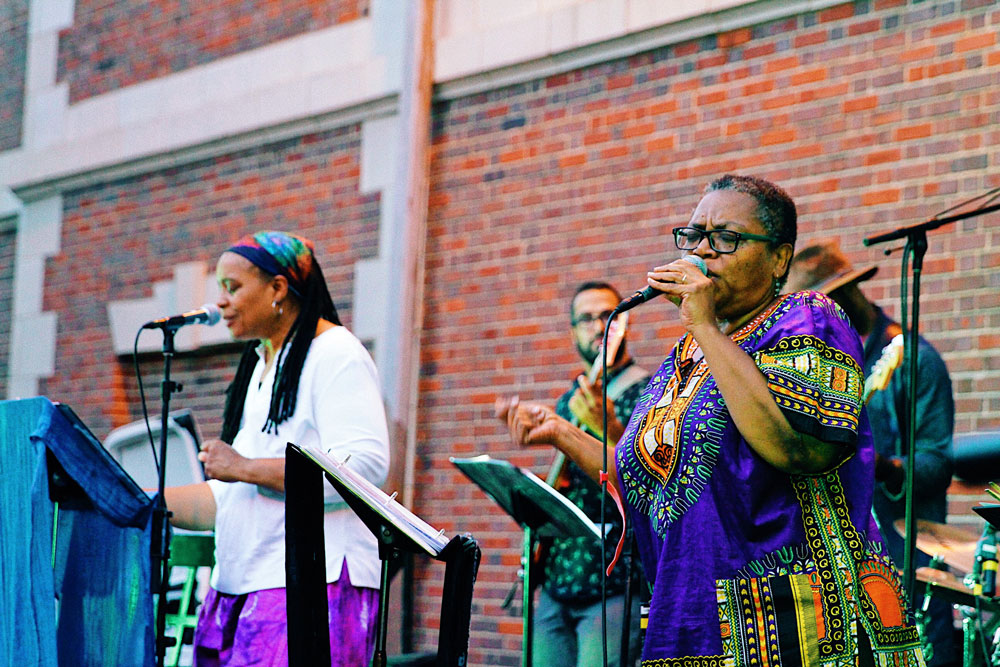
As Corley pointed out, one of the things he had in common with much of the musical talent migrating from the South to Chicago was the state he was leaving. Like Muddy Waters, Willie Dixon, Bo Diddley and many others whose glowing careers turned them into blues royalty, Broonzy hailed from one of the poorest and most repressive states in the country, Mississippi. A key modification they would make to their signature sound was to electrify it; attracting and captivating new audiences around the world and developing a sound that would become synonymous with Chicago. It’s that high energy, core probing electrified blues Smith and her crew used to fill the skies on a gorgeous August afternoon.
Smith and her band covered many of the hits that spanned the Golden age of the blues, dishing out familiar hits like Richard Jones’, Trouble in Mind and McKinley Morganfield’s, Rolling Stone. It was fascinating to hear how Morganfield’s classic started out as the Catfish Blues and learn the backstory behind Morganfield morphing into the great Muddy Waters. In the hands of virtuoso musicians on bass, guitar, drums and keys; and through Smith’s sumptuously versatile delivery, each song resonated with invigorating brightness and urgency.
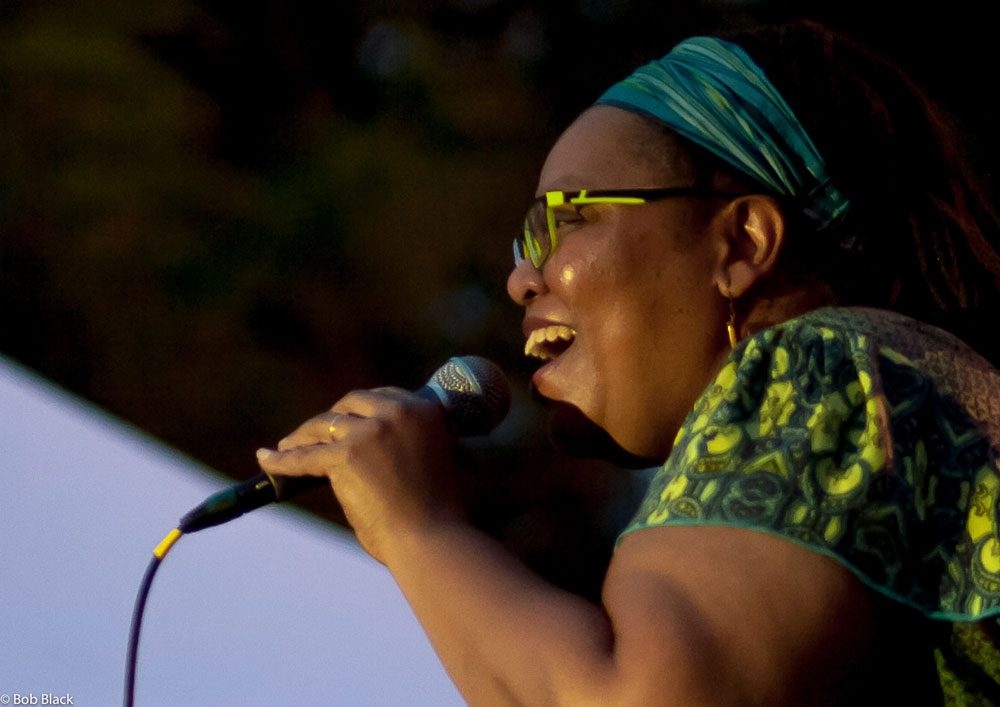
Certainly not forgetting the women who made their signature mark on the blues, the program included the contributions of Memphis Minnie (a Mississippian), Lil Green and that overarching powerhouse, Koko Taylor. Offering renderings of some of the music that placed them in the limelight, you were reminded that the blues is made up of many facets. Smith’s beautiful rendition of Memphis Minnie’s (Lizzie “Kid” Douglas) In My Girlish Days pulsed with the tenderness of poetry and the sagacity of earned wisdom. Later, she flipped the switch and did Koko proud with a full-throated tribute to Ms. Taylor’s house rumbling Voodoo Woman.
Written and directed by Ms. Corley and Ms. Smith, Chicago Bound: The Great Migration of the Blues has been setting up their bandstand and showering musical magic in Chicago parks across the city this summer. Ellis Park in Bronzeville was their first stop on July 7th. That performance was followed by their most recent concert August 3rd, celebrating Morgan Park’s Roots Festival in Ada Park. They conclude their supremely gratifying run September 6th on the far northside at 6:00pm in West Ridge’s Warren Park.
(Don’t forget to bring your lawn chair.)
For more information: lucysmithjazz.com/chicago-bound-the-great-migration-of-the-blues
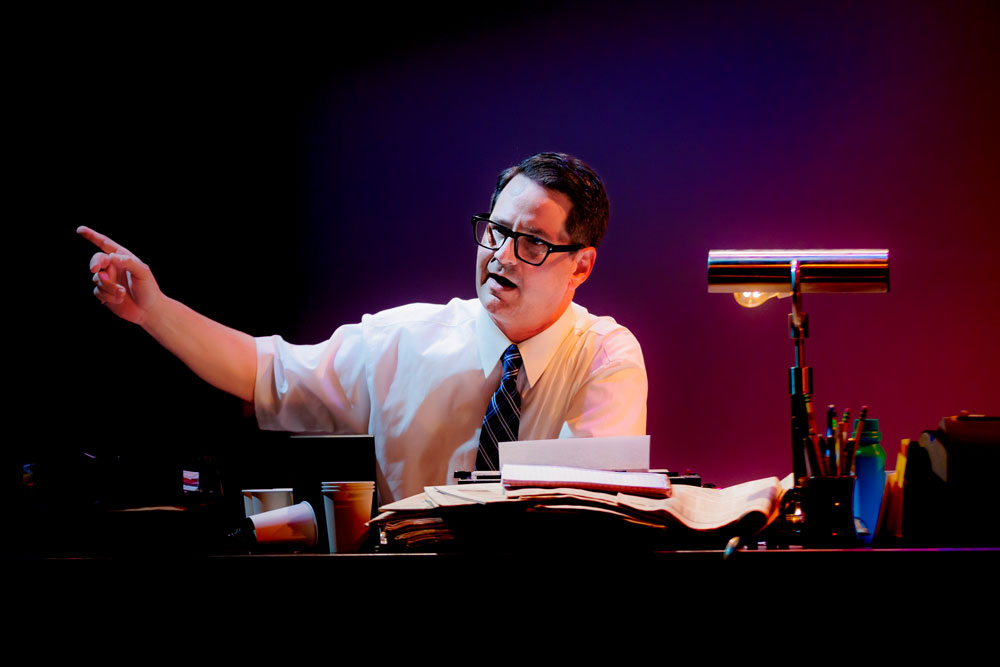
![PrideArts [title of show] Raining Gold](https://rowgseat1.com/wp-content/uploads/2024/09/a53939222075_ceaf585bae_k.jpg)
